One Day in Girona (with teenagers)
We only had one day to spend in Girona. That, and the fact that we had three rather grumpy teenagers trailing after us, meant that we had to choose what we saw very carefully.
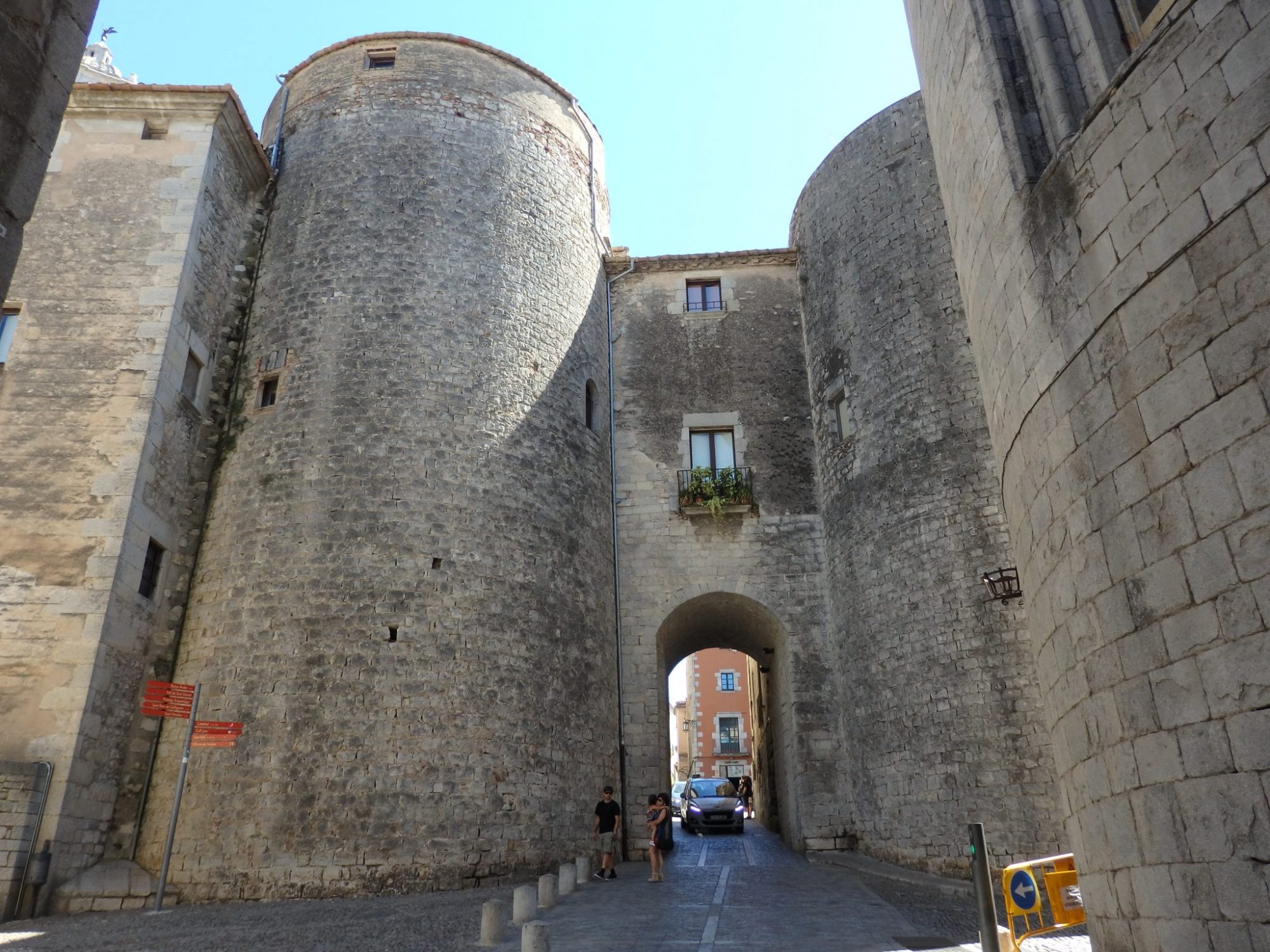
Disclosure: This article contains affiliate links. Making a purchase through an affiliate link will mean a small commission for this website. This will not affect your price.
The Arab Baths of Girona
On any trip in the Catalonia region of Spain, you’re bound to see a lot of churches. Too many, if you’re traveling with teenagers, who just don’t see the charm of churches.
I’m not even Christian, but I love the history inherent in churches. So much of each culture, whether it’s in Spain or anywhere else, gets poured into churches: their architecture and interiors, but also the events that happen in and around them.
Two of my trailing teenagers aren’t Christians either, and one of them remarked to me midway through our Spain vacation, “Could we visit an old mosque for a change instead of more old churches?”
The problem was that we weren’t in the part of Spain where historical mosques would be easy to find. Googling Girona, I came upon a listing for the Arab Baths. I figured, “Well, it’s not a mosque, but at least it’s something to do with Muslim culture.”
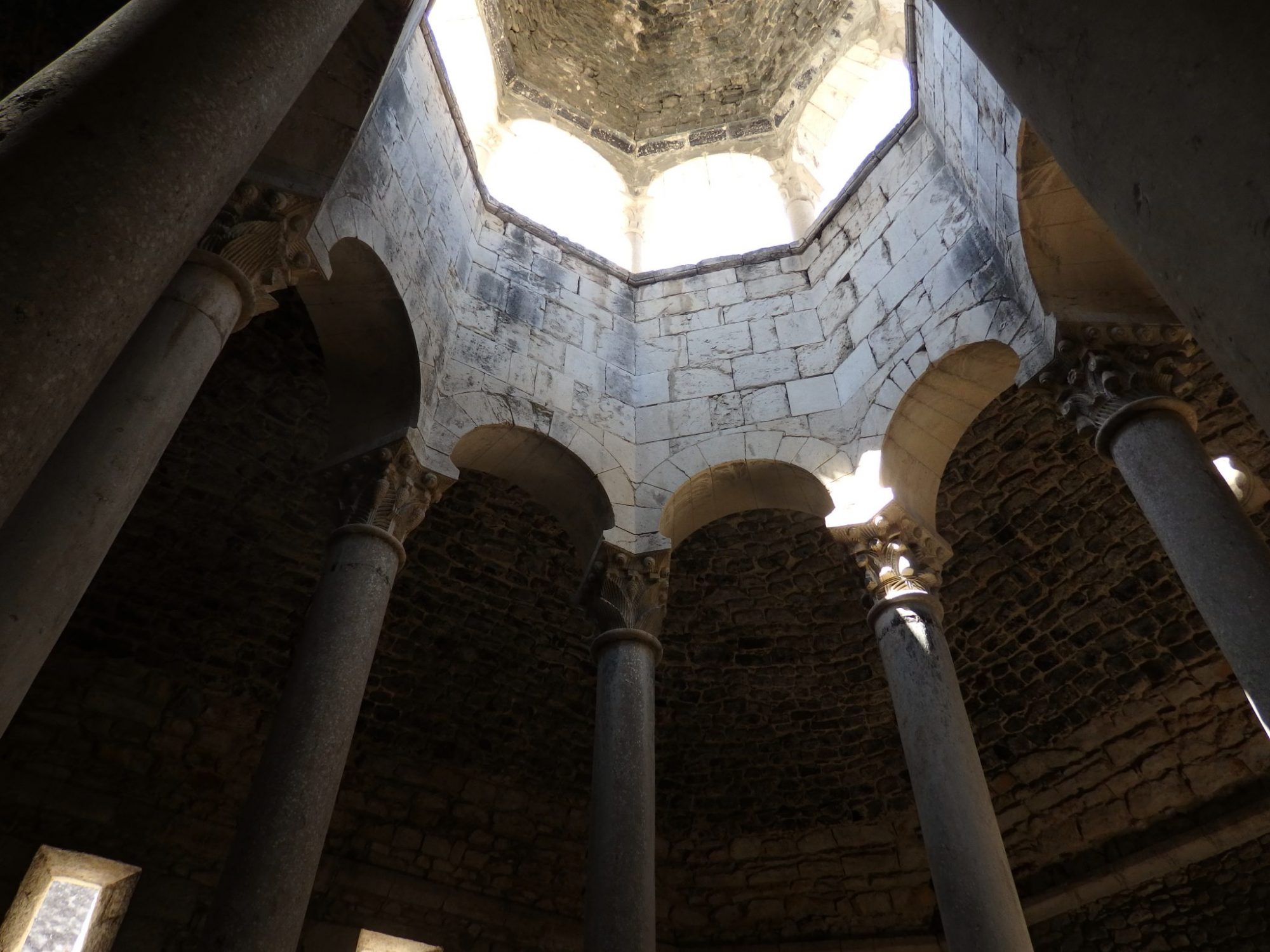
I was wrong.
The Arab Baths of Girona have nothing to do with Arabs. Built – or, rather, reconstructed – in the Middle Ages under orders of King James II, it was just a bathhouse. People called it the Arab Baths because it imitated a North African style of bathhouse. That’s the only link.
The bathhouse was used by Christians and Jews. No Muslims at all. Later, it was incorporated into a Capuchin convent.
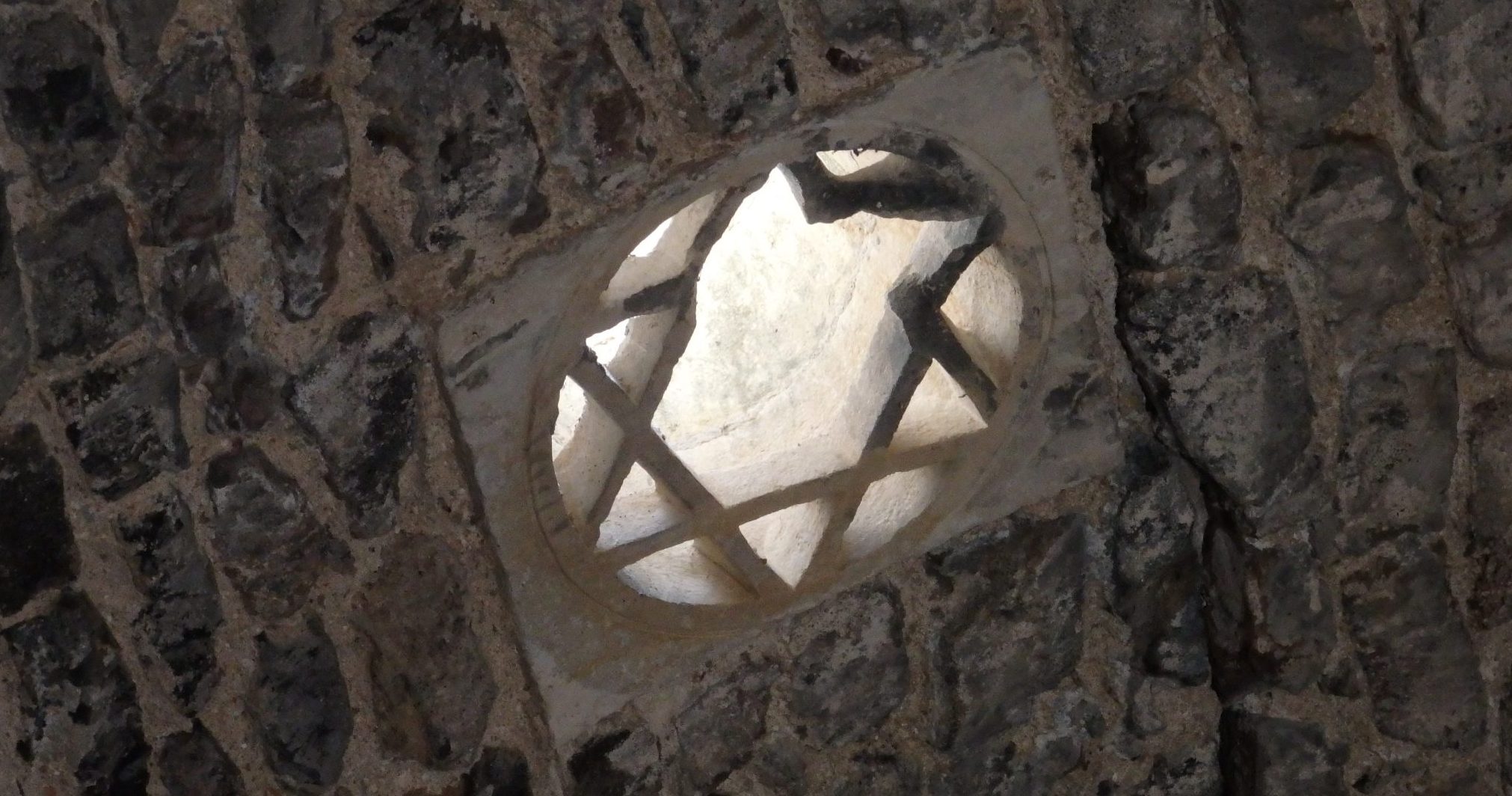
Nevertheless, the architecture is interesting, with columns carved with Christian symbols and lovely light that filters through from above. In its day, bathers passed through four rooms, one at a time – the apodyterium (the “locker room” with the dome, pictured above), the frigidarium (cold room), the tepidarium (warm room) and the caldarium (hot room). The heat came from an under-floor system, parts of which have been excavated for viewing.
Girona Cathedral
The cathedral of Girona makes a grand entrance. Generally, you first see it from below, and approach it up a wide stairway. It’s a huge cathedral, but its placement at the top of that stairway makes it appear even bigger.
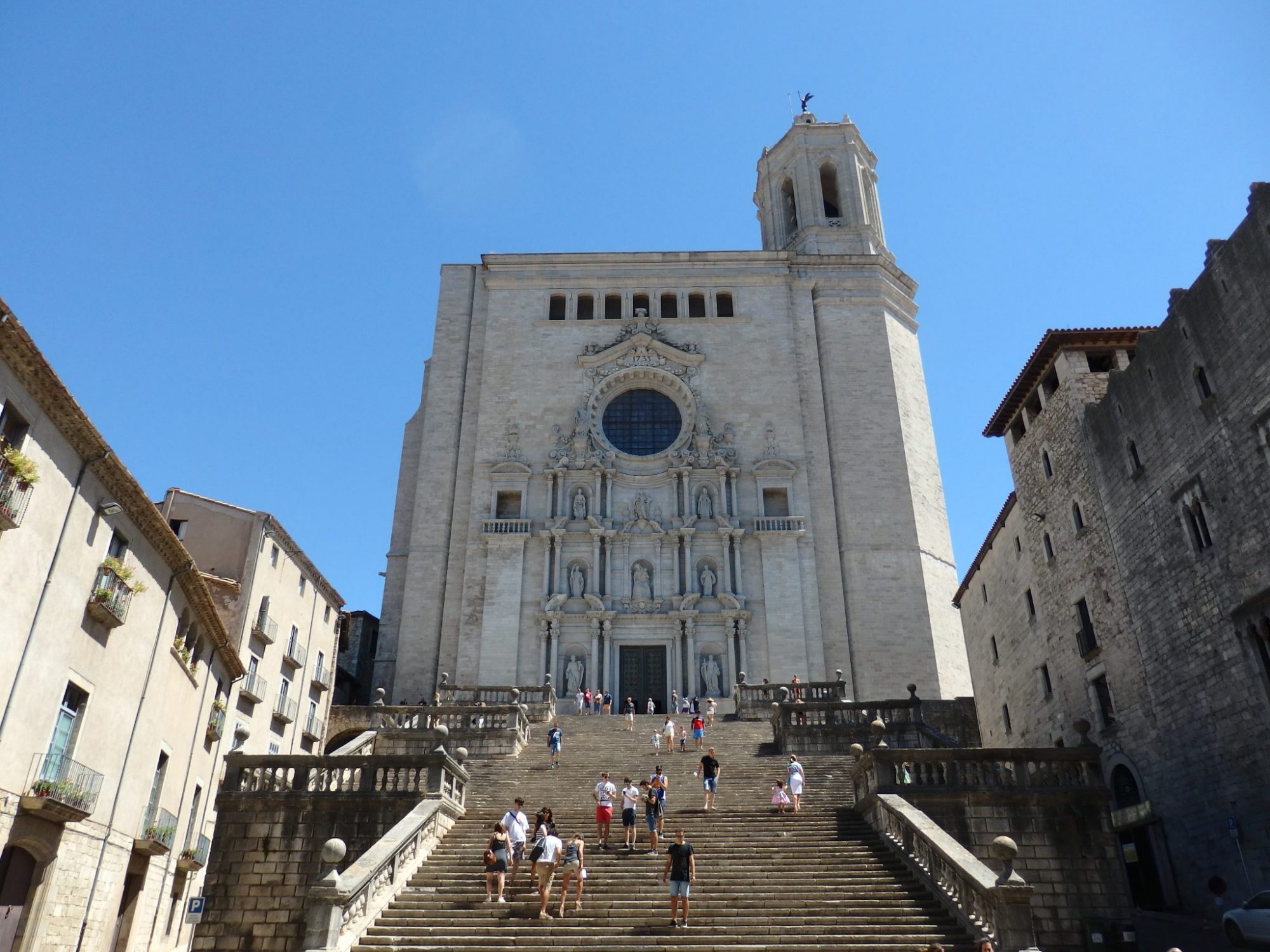
Inside, the gothic-style nave is purportedly the widest in the world. The chapels lining the sides of the cathedral provide a lesson in devotional art through the ages. Each alcove contains early medieval artwork or late medieval artwork or baroque or whatever. After viewing several of these, my foster daughter could identify the artistic period in the subsequent alcoves. An audio guide (free with admission) allows visitors to hear the stories that go with each of the chapels.
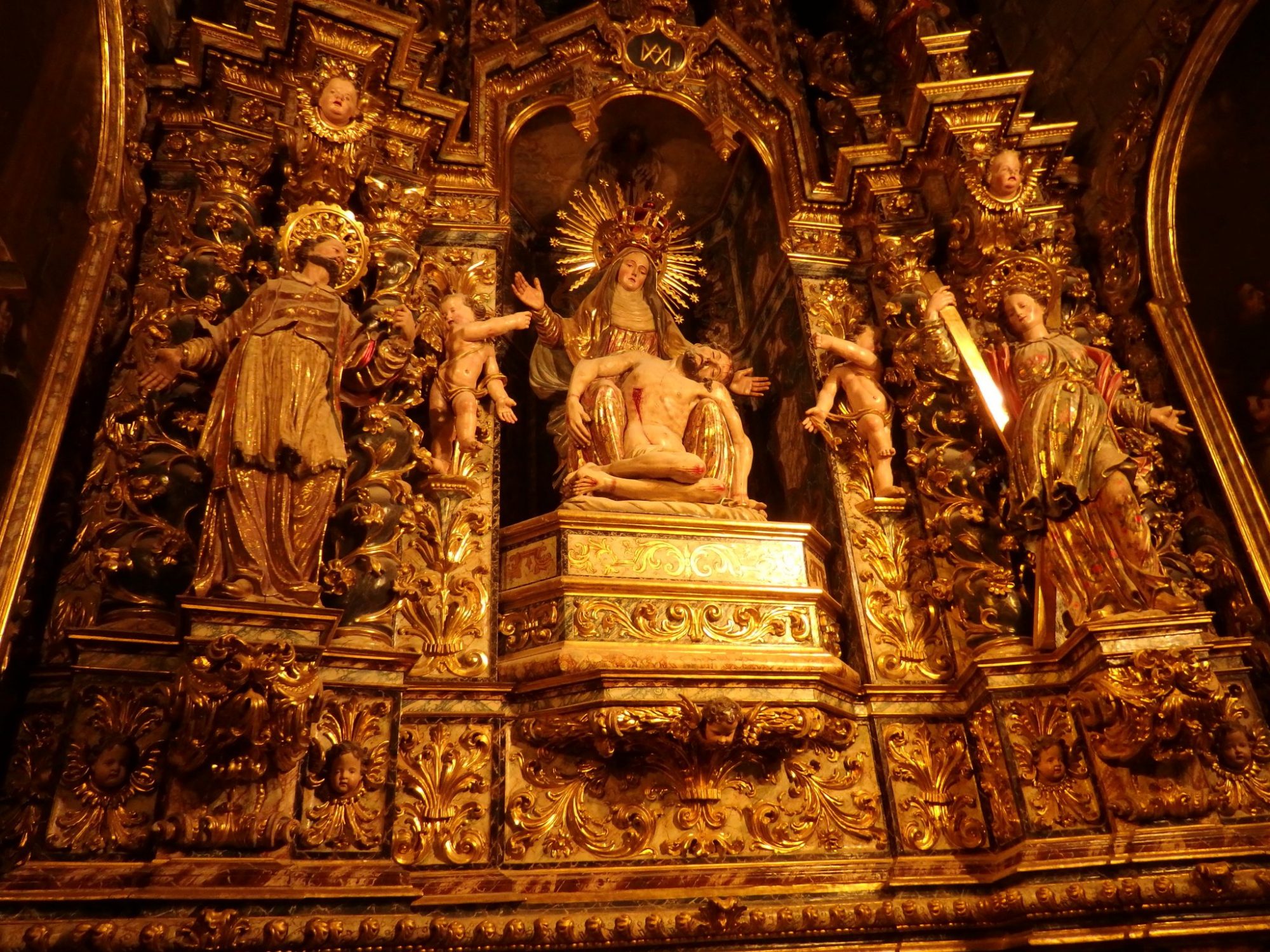
The cloister, like so many medieval cloisters, offers a moment of peace. Its remarkably well-preserved and detailed columns, especially the various designs on the capitals on top, are worth some closer study.

The entrance fee includes the Cathedral Treasury Museum: definitely worth a walk-through. The highlight is the vivid and colorful 11th-12th-century Creation tapestry, with its images of the biblical creation story.
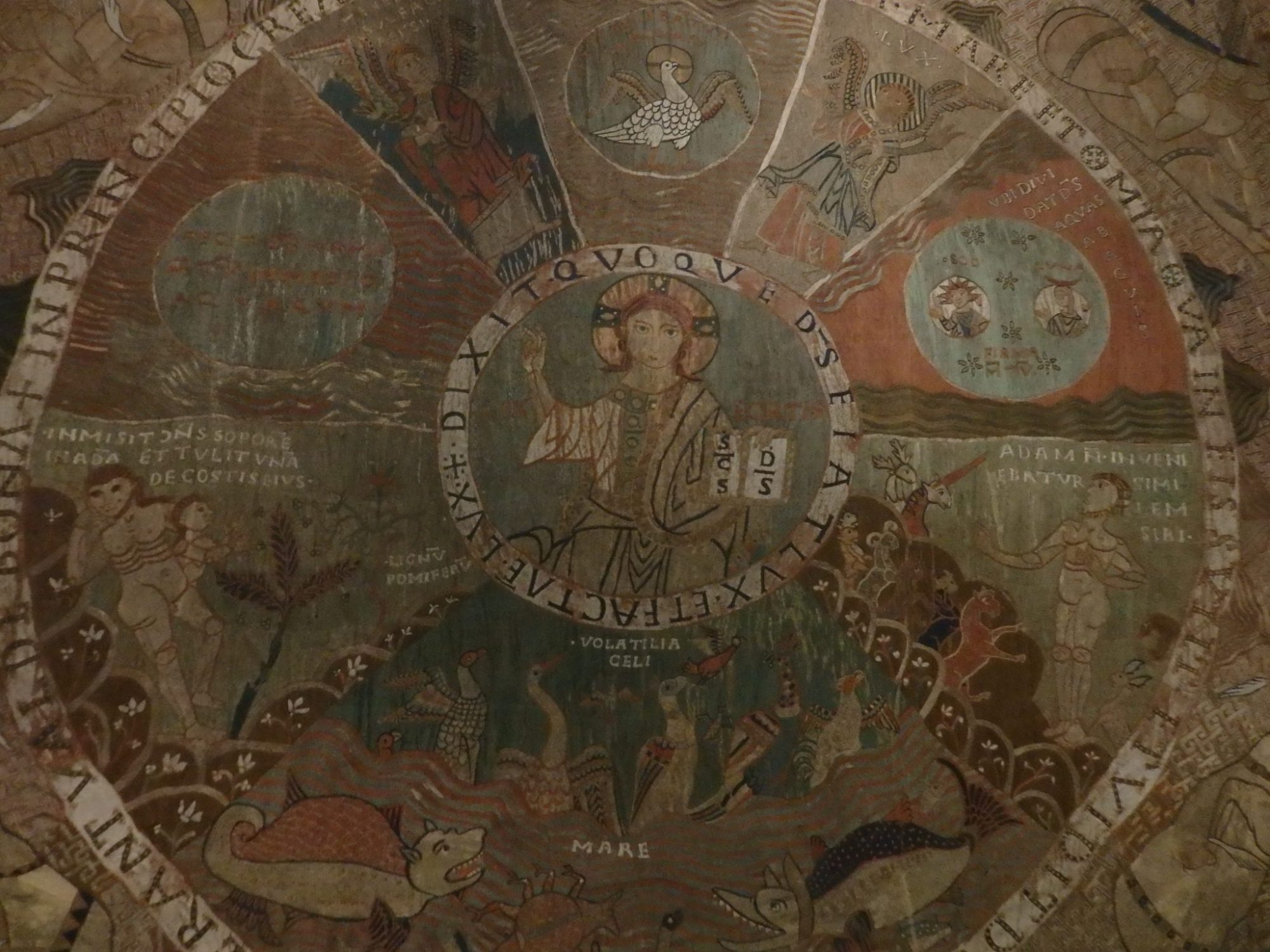
While our foster daughter joined us in the church and enjoyed hearing the audio guide explanations, the two boys waited outside the cathedral, preferring to people-watch. That saved us paying the entrance fees for them, so it was fine with us. I think they would have enjoyed this cathedral about as much as they enjoyed the Dali Theatre-Museum on the same trip: not at all!
Streets of Girona and the Jewish Quarter
Small apartment buildings painted in earth tones line Girona’s river: a pretty sight, which we viewed from one of several bridges across the river.
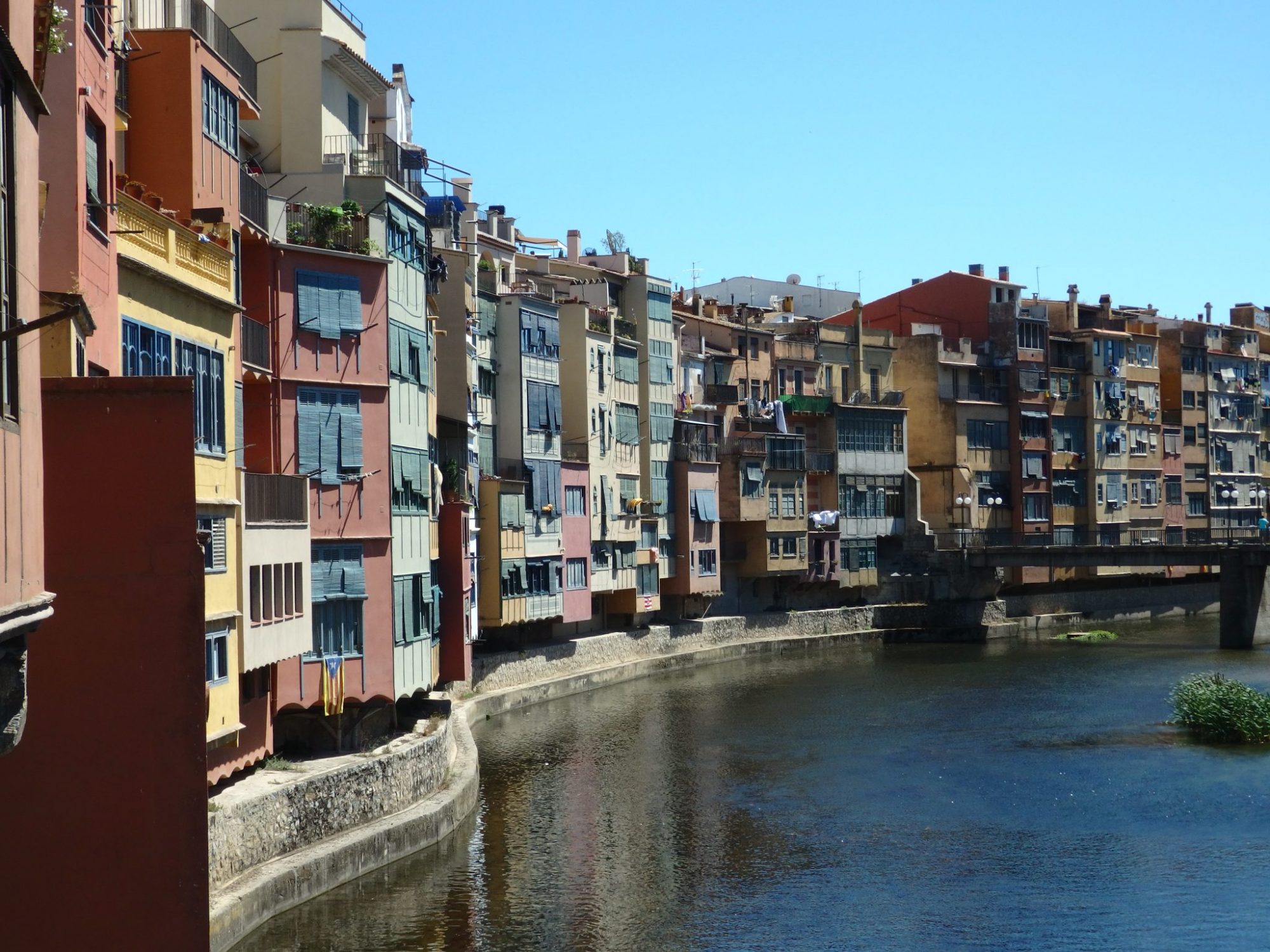
This area of narrow streets beside the river was the medieval Jewish quarter. Originally based up the hill next to the Cathedral, the Jewish community moved down to this neighborhood in the 12th century. Their numbers dwindled until the Inquisition, when the few remaining Jewish families either fled or converted to Christianity. Many of the converts were put on trial for continuing to practice Jewish rites. Some ended up fleeing to avoid trial or were found guilty and either rehabilitated or executed.
Further up the hill is the Força Vella area and medieval quarter, though it was not clear to me where the boundaries of each was. It doesn’t matter: the narrow, stone-built streets are shady and relatively cool, and you’ll pass through them anyway on the way to or from the Cathedral.
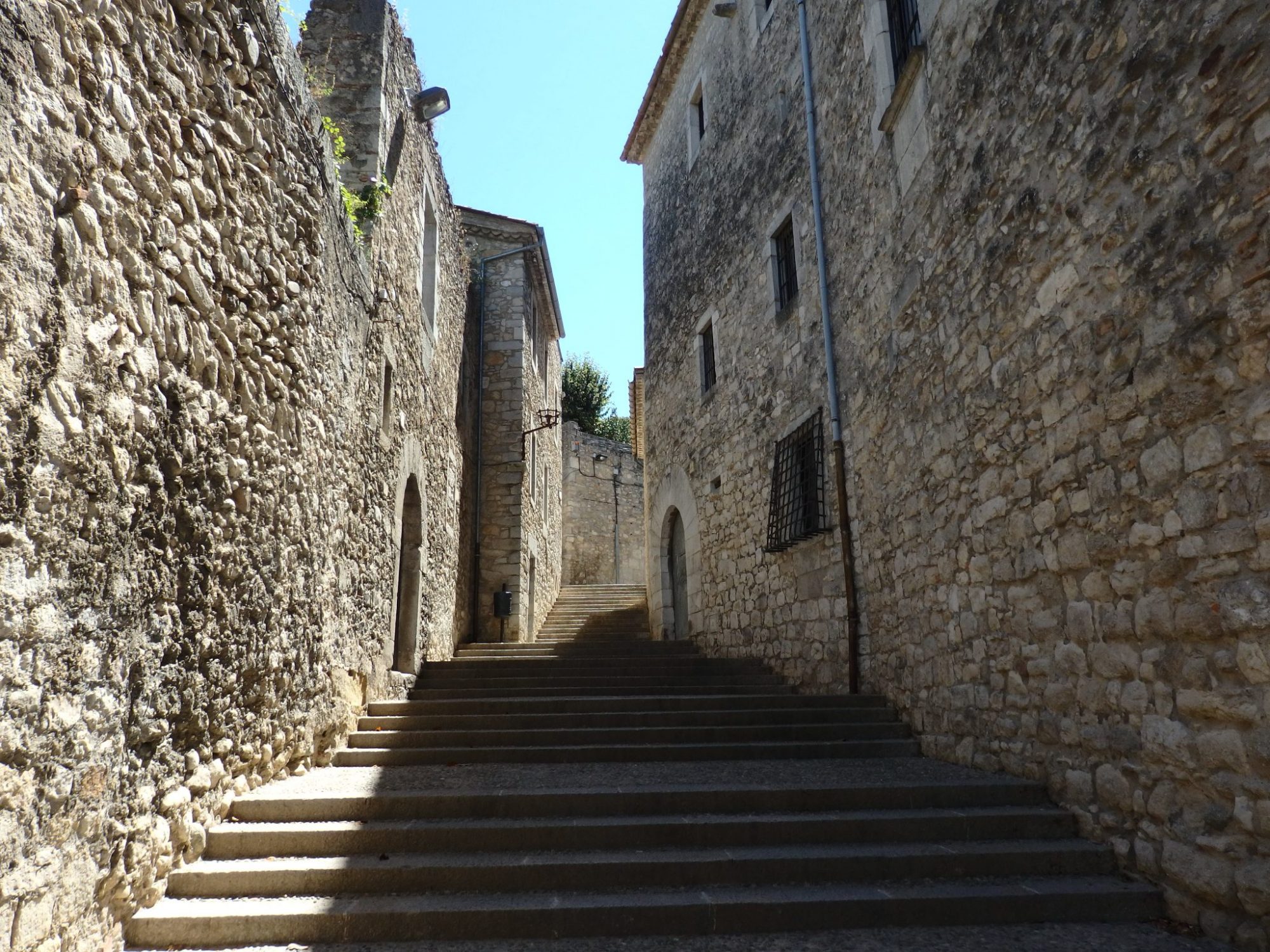
Girona’s city walls
A great way to get a look at the old city and the modern city and mountains beyond is from the restored remains of the 9th century city wall. You can walk on it for quite a distance, or just a segment or two. Here and there you can get an extra high view by climbing up in one of the guard towers.
Parts of the wall have steep stairways, and in the heat of August it was a lot of work. Our teenagers didn’t bother with all the towers, but nevertheless seemed to enjoy the walk. The cathedral, by the way, doesn’t look nearly as big when seen from above and behind.
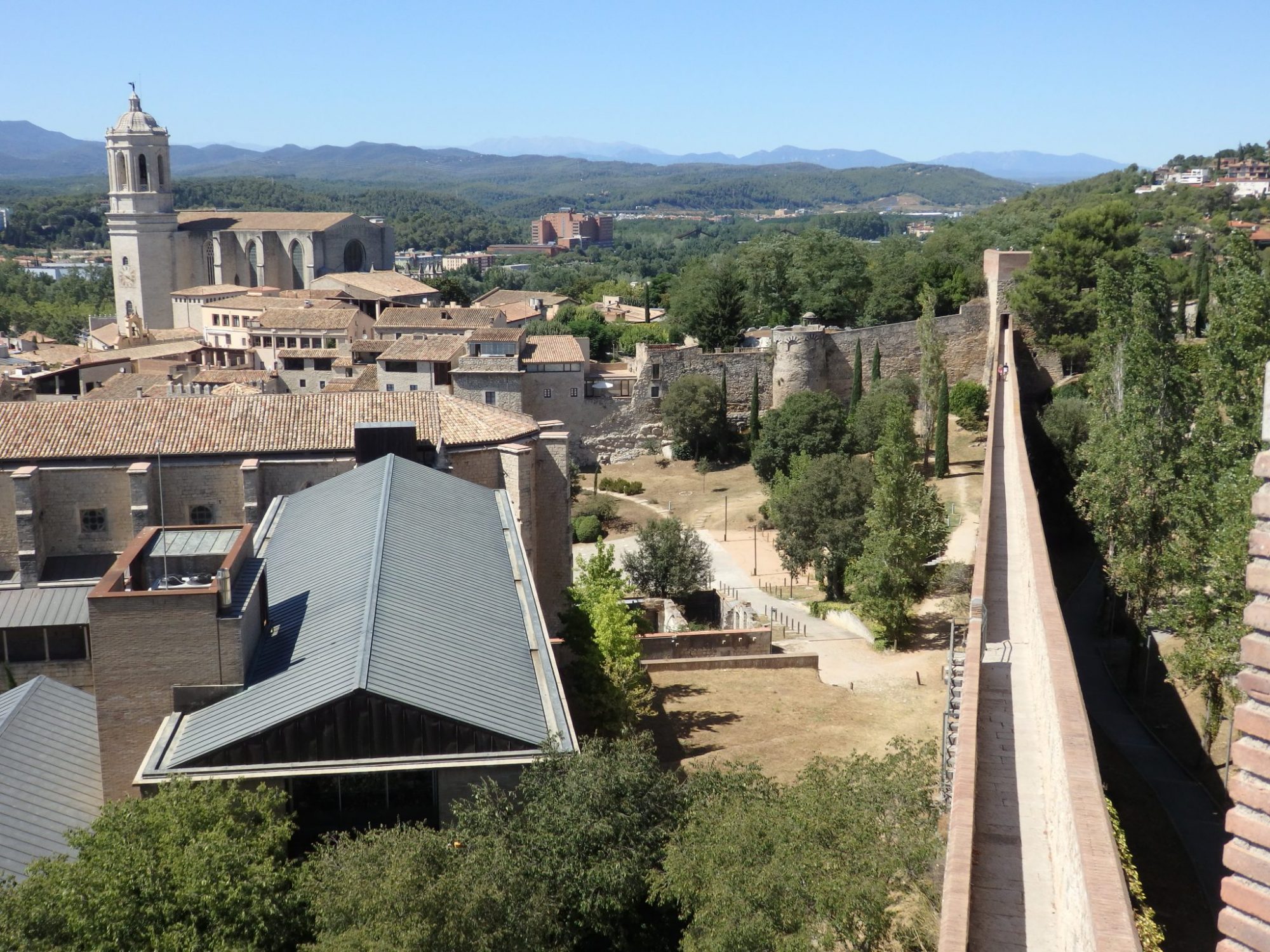
Given the heat of the day and the presence of reluctant teenagers, that’s all we got to see. You can check out Girona’s tourism site to read about what else Girona has to offer. Some of the museums sound excellent.
Have you been to Girona? Add a comment below with your suggestions of what to see there!
My travel recommendations
Planning travel
- Skyscanner is where I always start my flight searches.
- Booking.com is the company I use most for finding accommodations. If you prefer, Expedia offers more or less the same.
- Discover Cars offers an easy way to compare prices from all of the major car-rental companies in one place.
- Use Viator or GetYourGuide to find walking tours, day tours, airport pickups, city cards, tickets and whatever else you need at your destination.
- Bookmundi is great when you’re looking for a longer tour of a few days to a few weeks, private or with a group, pretty much anywhere in the world. Lots of different tour companies list their tours here, so you can comparison shop.
- GetTransfer is the place to book your airport-to-hotel transfers (and vice-versa). It’s so reassuring to have this all set up and paid for ahead of time, rather than having to make decisions after a long, tiring flight!
- Buy a GoCity Pass when you’re planning to do a lot of sightseeing on a city trip. It can save you a lot on admissions to museums and other attractions in big cities like New York and Amsterdam.
- Ferryhopper is a convenient way to book ferries ahead of time. They cover ferry bookings in 33 different countries at last count.
Other travel-related items
- It’s really awkward to have to rely on WIFI when you travel overseas. I’ve tried several e-sim cards, and GigSky’s e-sim was the one that was easiest to activate and use. You buy it through their app and activate it when you need it. Use the code RACHEL10 to get a 10% discount!
- Another option I just recently tried for the first time is a portable wifi modem by WifiCandy. It supports up to 8 devices and you just carry it along in your pocket or bag! If you’re traveling with a family or group, it might end up cheaper to use than an e-sim. Use the code RACHELSRUMINATIONS for a 10% discount.
- I’m a fan of SCOTTeVEST’s jackets and vests because when I wear one, I don’t have to carry a handbag. I feel like all my stuff is safer when I travel because it’s in inside pockets close to my body.
- I use ExpressVPN on my phone and laptop when I travel. It keeps me safe from hackers when I use public or hotel wifi.



What kind of teenagers don’t want to hang around this incredible place and party? What did they want to do instead? 😀
Nothing! Stay in our Airbnb apartment and play video games or watch videos or, in the girl’s case, talk for hours with her friends via whatspp.
Sounds like teenage angst – That dreadful time when doing nothing is infinitely more appealing than hanging out with your parents. It must be the same no matter what country you live in. However, Girona looks like a lovely city to visit and while we’re not religious, I really do enjoy visiting the old cathedrals and small churches. I love walking into the immense spaces where the atmosphere is hushed and treasures glow in the filtered light. Maybe someday I’ll get “churched out” but not for awhile!
You’ve phrased beautifully what I like about historical churches! The kids I was traveling with are my son (Dutch and American) and two Syrian kids. So, yes, I think it might be universal.